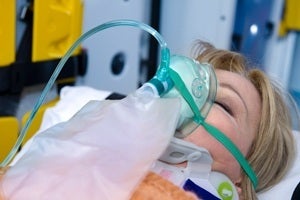Related Topics
Red meat consumption linked to increased risk of total, cardiovascular, and cancer mortality
For immediate release: Monday, March 12, 2012 Boston, MA -- A new study from Harvard School of Public Health (HSPH) researchers has found that red meat consumption is associated with an increased risk of total, cardiovascular, and cancer…

Hispanics born abroad face lower stroke risk than US-born Hispanics and whites
A new study by HSPH researchers has found that Hispanics born outside of the United States are less likely to have a stroke than U.S.-born Hispanics and non-Hispanic whites. HSPH doctoral student J. Robin Moon and her colleagues…
Omega-3s tied to lower risk of irregular heartbeat
People with higher-than-average levels of omega-3 fatty acids in their blood may be roughly 30 percent less likely than those with the lowest levels to develop atrial fibrillation, according to new Harvard School of Public Health research. Atrial…
Recent bereavement greatly increases heart attack risk
A new study by Harvard School of Public Health researchers and their colleagues finds that the death of a loved one greatly increases the risk of having a heart attack. Researchers found that bereaved individuals were 21 times…
Red meat linked to higher stroke risk
Frequently consuming red meat appears to increase the risk of stroke significantly, while choosing to eat poultry and other proteins, such as fish or nuts, lowers the risk, according to a new study by researchers at Harvard School…
Overall hospital admission rates in U.S. linked with high rates of readmission
Current Focus on Improving Transitional Care for Patients to Reduce Readmission Rates May Be Failing to Address Large Part of Problem For immediate release: Wednesday, December 14, 2011 Boston, MA — High hospital readmission rates in different regions…

Mother's trans fat consumption linked to baby's size
A new study by Harvard School of Public Health researchers and colleagues found that women who ate more food containing trans fats, such as fried foods and baked goods, gave birth to larger babies. The study will appear…
Vigorous exercise linked to higher vitamin D levels, lower heart disease risk
It’s long been known that vigorous exercise lowers heart disease risk. Now, new research from the Harvard School of Public Health (HSPH) suggests some new reasons why that’s so—most notably, that it boosts vitamin D. Researchers found that…
Heart disease: A little exercise goes a long way
Even a small amount of exercise may significantly lower your risk of getting heart disease, according to a new study conducted at the Harvard School of Public Health (HSPH). A team led by Jacob Sattelmair, who did the…
Nutrition news: Hold the salt, pass the potassium
Too much salt paired with too little potassium may increase people’s risk of mortality, according to a study co-authored by Harvard School of Public Health professor of nutrition and epidemiology Frank Hu. Hu and colleagues found that people…